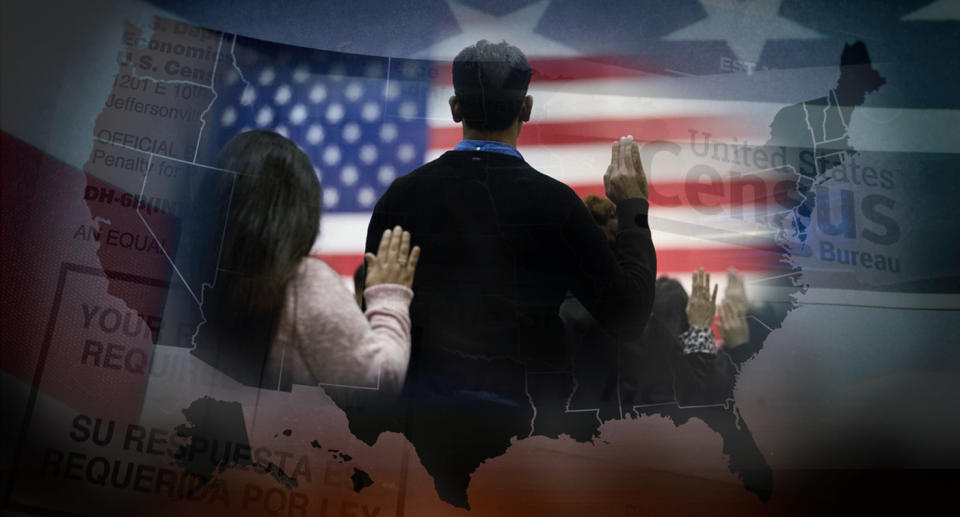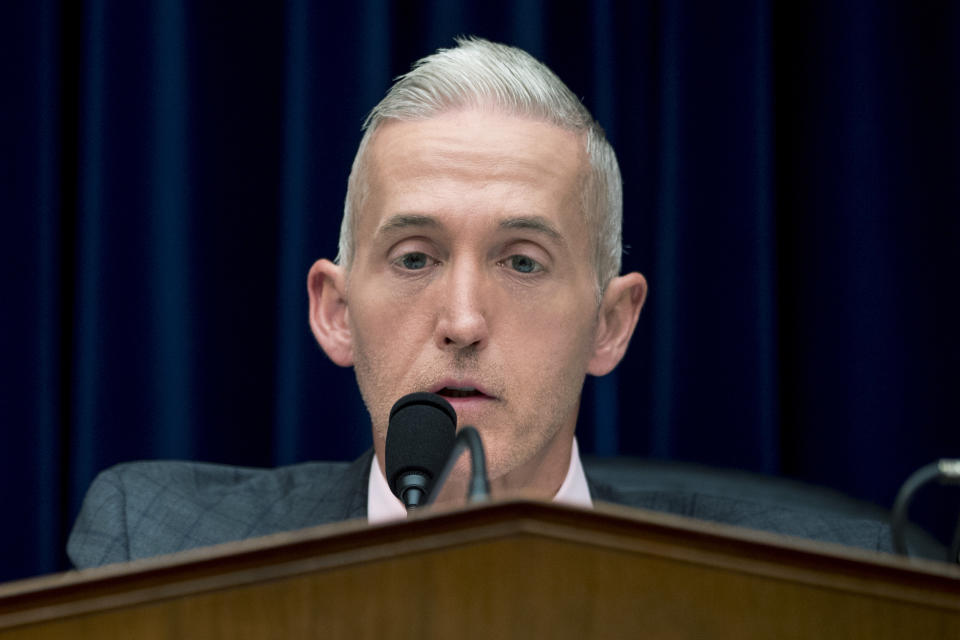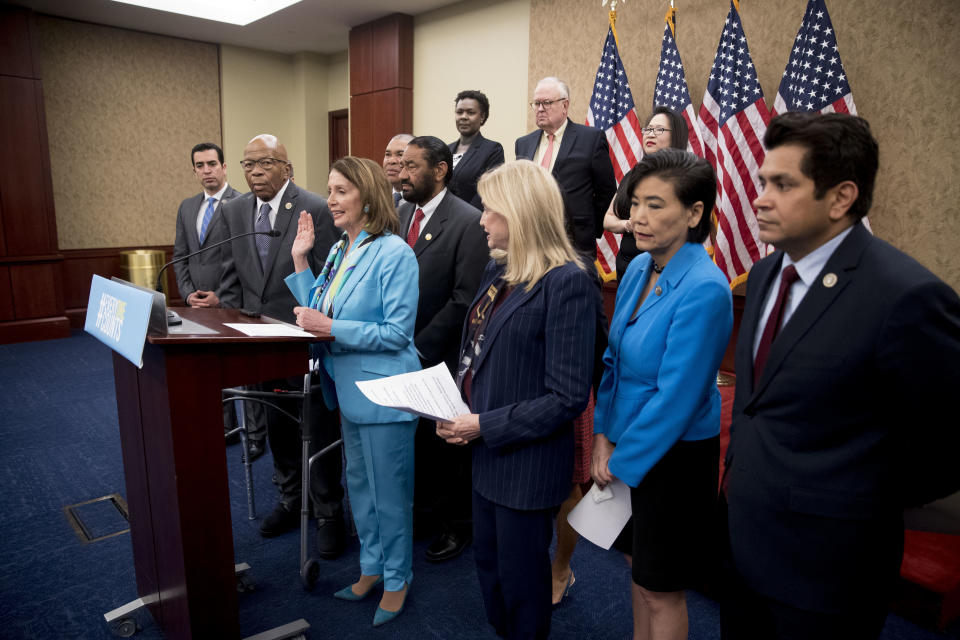Republicans block deeper probe into census citizenship question
WASHINGTON — An effort by House Democrats to find out why the Justice Department wants a citizenship status question on the 2020 census was blocked Wednesday by their Republican colleagues, even as some lawmakers vowed to continue investigating the genesis of the controversial new question.
In a letter sent to the U.S. Census Bureau last year, the Justice Department argued that the purpose of the question was “a reliable calculation of the citizen voting-age population in localities where voting rights violations are alleged or suspected.” Commerce Secretary Wilbur Ross later said he would honor the request.

But many advocates and experts say the question is unnecessary and, worse, politically motivated. Writing in the San Francisco Chronicle, the California attorney general, Xavier Becerra, and its secretary of state, Alex Padilla, argued that the question “would discourage noncitizens and their citizen family members from responding to the census, resulting in a less accurate population count.” Such an undercount could benefit Republicans during the decennial redrawing of district lines by counting fewer people in Democratic-leaning districts.
Eighteen states, including California, are suing President Trump’s administration regarding the question.
In a parallel effort earlier this month, first-term Rep. Jimmy Gomez, D-Calif., a member of the House Oversight Committee, accused the Trump administration of “disgraceful political games” and introduced a request for information that would have forced the Justice Department to turn over documents related to its decision to ask the controversial question.

The House Oversight Committee had already been investigating the census, but Democrats have sought to make that inquiry more muscular. Last week, Rep. Carolyn Maloney, D-N.Y., attempted to subpoena John Gore, a top attorney in the Justice Department’s Civil Rights Division. Gore, who has helped Republicans in gerrymandering efforts, failed to show up at a May 8 committee hearing, causing a rare bipartisan outrage. “He is coming to talk whether he wants to or not,” fumed Rep. Trey Gowdy, R-S.C. Gore showed up to answer questions 10 days later, but Maloney tried to subpoena him anyway. Her motion failed.
The motion by Gomez, which would have required Gore’s office to produce documentation of how it decided on the citizenship question, met the same fate Wednesday, failing in a partisan 20-16 vote. That vote followed a charged debate in which Democrats accused the Trump administration of attempting to suppress voter rights. Republicans, for their part, noted that citizenship had once been part of the census, and argued that its reintroduction would only abet the cause of representative democracy.
Democrats argued strongly for the Gomez motion. “The census is supposed to be a nonpartisan endeavor,” said Rep. Elijah Cummings, D-Md. Gomez said he wanted to know whether anti-immigration advocates like Stephen Miller, a senior White House adviser, or Kris W. Kobach, the Kansas secretary of state who was formerly head of a short-lived voter fraud panel, were involved in the effort — or whether Trump himself perhaps was.
The citizenship question would “hit people in the face who are legally in this country,” argued Eleanor Holmes Norton of Washington, D.C., arguing that Republican states would also fall victim to undercounts. Rep. Gerry Connolly, D-Va., chided his Republican colleagues on more political grounds. “Not one for one minute would you have tolerated that non-response from the Obama administration,” he said of Gore’s evasive testimony the previous week.
“But today it’s different,” Connolly said, because Trump is president.

Republicans, meanwhile, said Gomez’s measure was unnecessary. Rep. Mark Meadows, R.-N.C., assured Gomez that the House Oversight Committee would do a full inquiry into the citizenship question — in time. “The census, the 2020 census,” Meadows said, “will not happen for over two years, and if we cannot accommodate for just a few weeks, I just find troubling.” Others Republicans indicated that they had no problem with the question, with Rep. Paul Mitchell, R-Mich., criticizing Democrats for succumbing to a “the-sky-is-falling” mentality fostered by some news outlets.
At times, the debate veered into the broader question of voting rights. Rep. Jamie Raskin, D-Md., a Harvard-trained lawyer, said that “alien suffrage” was common in the United States in the 19th century and was still allowed in some municipalities. Raskin pointed out that it was actually Republicans who, in the pre-modern nation, had supported the rights of noncitizens to vote.
“I thank my friend Professor Raskin,” Gowdy said in response. “That is the most number of nice things I’ve heard about the Republican Party said in five minutes in the time I have been here.”
“I’m glad you took it as praise,” Raskin joked back. But then the joking was over, and the time for voting came.
Read more from Yahoo News:



